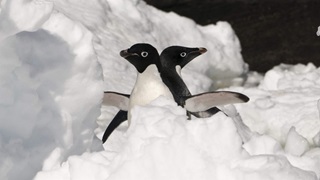National Cancer Research Month
|
|
May is National Cancer Research Month, and Pew's biomedical scholars and Latin American fellows are doing their part to address the disease, which affects nearly 13 million people in the United States, according to the American Cancer Society.
More than 130 Pew-supported scientists are engaged in research for preventing or treating cancer. For instance, 2011 scholar Mei Kong studies cancer cell metabolism with the long-term goal of developing therapies that would target only cancer cells. Suzana Kahn, a 2012 Latin American fellow, examines the cells initiating glioblastomas—some of the most aggressive and difficult-to-treat brain tumors.
These projects and many more provide creative insights into the basic biology of cancer and are paving the way for new approaches to combat the disease. To learn more about Pew's programs in the biomedical sciences, click here.












